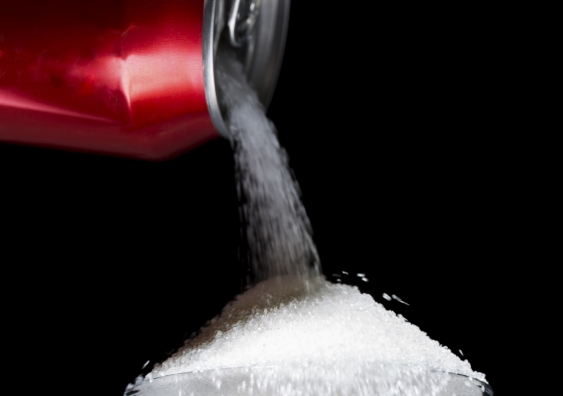OPINION: We all know that cola and lemonade aren’t great for our waistline or our dental health, but our new study on rats has shed light on just how much damage sugary drinks can also do to our brain.
The changes we observed to the region of the brain that controls emotional behaviour and cognitive function were more extensive than those caused by extreme early life stress.
It is known that adverse experiences early in life, such as extreme stress or abuse, increase the risk of poor mental health and psychiatric disorders later in life.
The number of traumatic events (accidents; witnessing an injury; bereavement; natural disasters; physical, sexual and emotional abuse; domestic violence and being a victim of crime) a child is exposed to is associated with elevated concentrations of the major stress hormone, cortisol.
There is also evidence that childhood maltreatment is associated with reduced brain volume and that these changes may be linked to anxiety.
What we found
Looking at rats, we examined whether the impact of early life stress on the brain was exacerbated by drinking high volumes of sugary drinks after weaning. As females are more likely to experience adverse life events, we studied female Sprague-Dawley rats.
To model early life trauma or abuse, after rats were born half of the litters were exposed to limited nesting material from days two to nine after birth. They then returned to normal bedding until they were weaned. The limited nesting alters maternal behaviour and increases anxiety in the offspring later in life.
At weaning, half the rats were given unlimited access to low-fat chow and water to drink, while their sisters were given chow, water and a 25% sugar solution that they could choose to drink. Animals exposed to early life stress were smaller at weaning, but this difference disappeared over time. Rats consuming sugar in both groups (control and stress) ate more calories over the experiment.

The changes in the brain induced by sugar are of great concern given the high consumption of sugar-sweetened beverages by children. Image: iStock
The rats were followed until they were 15 weeks old, and then their brains were examined. As we know that early life stress can impact mental health and function, we examined a part of the brain called the hippocampus, which is important for both memory and stress. Four groups of rats were studied – control (no stress), control rats drinking sugar, rats exposed to stress, and rats exposed to stress who drank sugar.
We found that chronic consumption of sugar in rats who were not stressed produced similar changes in the hippocampus as seen in the rats who were stressed but not drinking sugar. Early life stress exposure or sugar drinking led to lower expression of the receptor that binds the major stress hormone cortisol, which may affect the ability to recover from exposure to a stressful situation.
Another gene that is important for the growth of nerves, Neurod1, was also reduced by both sugar and stress. Other genes important for the growth of nerves were investigated, and just drinking sugar from a young age was sufficient to reduce them.
The rats were exposed to high sugar intakes during development, and the impact of the sugar is worrying as it may affect brain development, although further work is required to test this.
In this study, combining sugar intake and early life stress did not produce further changes in the hippocampus, but whether this remains the case over time is unclear.
What does this mean for us?
The changes in the brain induced by sugar are of great concern given the high consumption of sugar-sweetened beverages, with particularly high consumption in children aged nine to 16 years. If similar processes are at play in humans to what was found in our rat study, reducing the consumption of sugar across the community is important.
The fact that drinking sugar or exposure to early life stress reduced the expression of genes critical for brain development and growth is of great concern. While it is impossible to perform such studies in humans, the brain circuits controlling stress responses and feeding are conserved across species.
People who were exposed to early life trauma have changes in the structure of their hippocampus. In humans, those consuming the most “western” diet had smaller hippocampal volumes, in line with data from animal models.
Taken together, these findings suggest future work should consider possible long-term effects of high sugar intake, particularly early in life, on the brain and behaviour.
Jayanthi Maniam is a Research Associate, UNSW.
Margaret Morris is Professor of Pharmacology, Head of Pharmacology, UNSW.
This opinion piece was first published in The Conversation.



